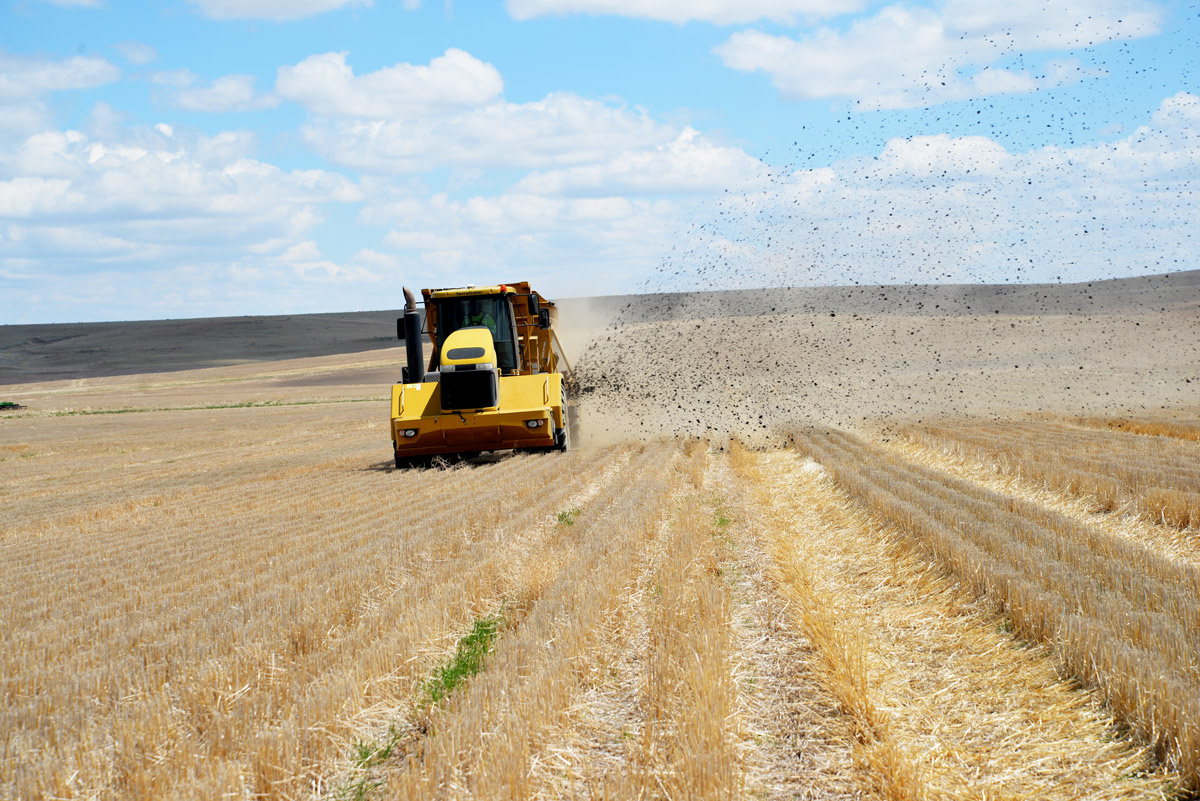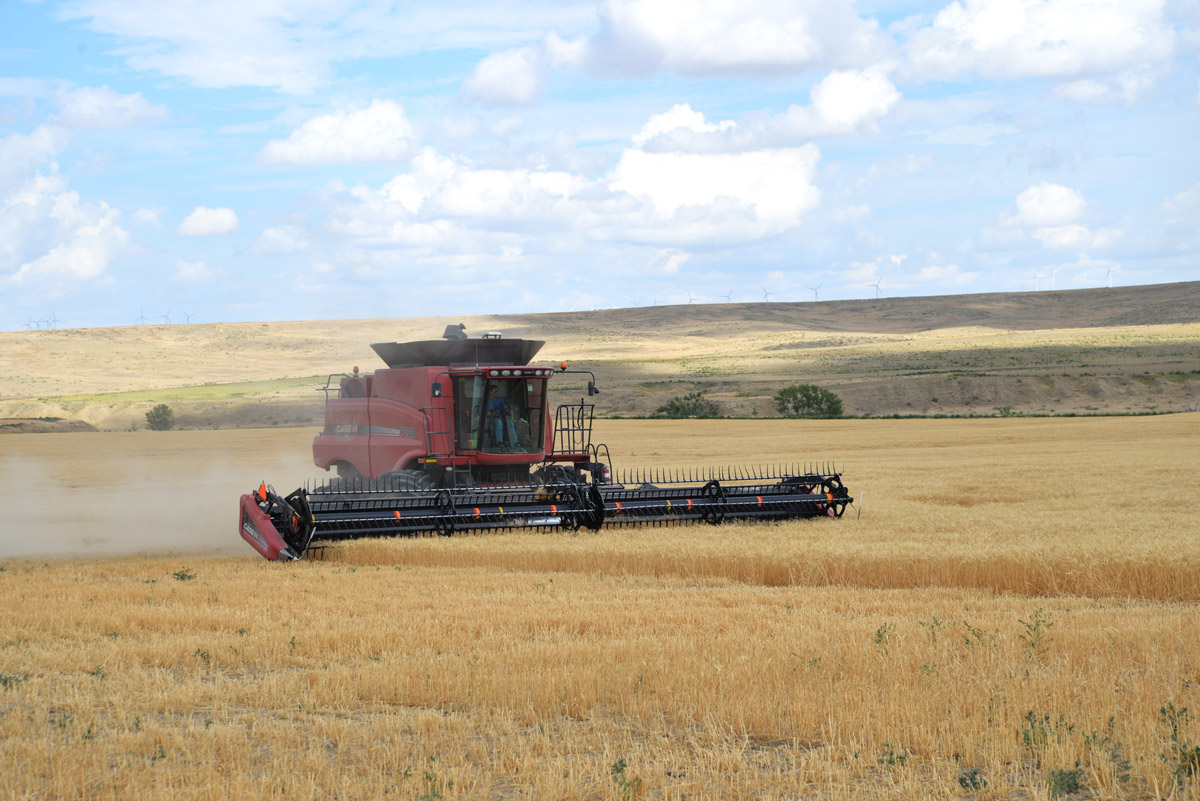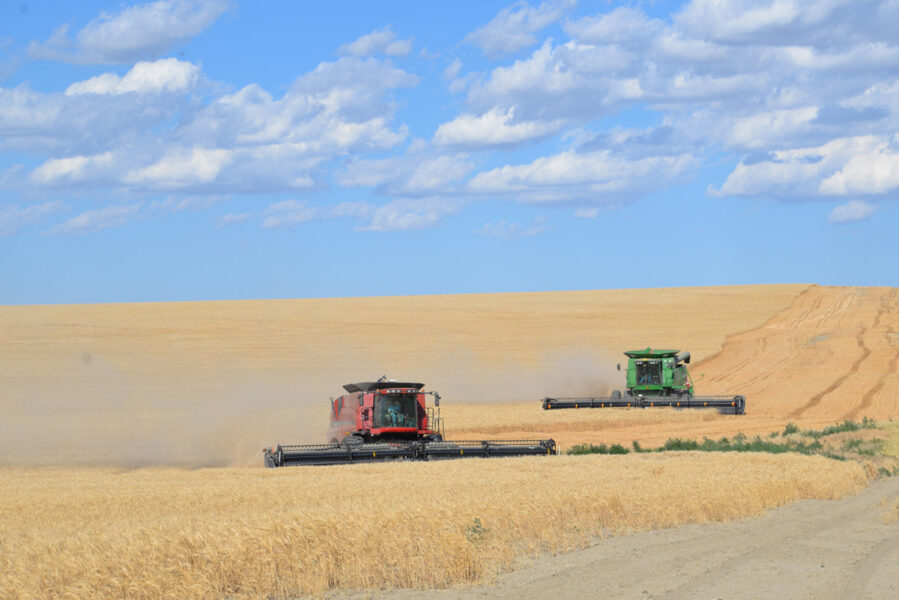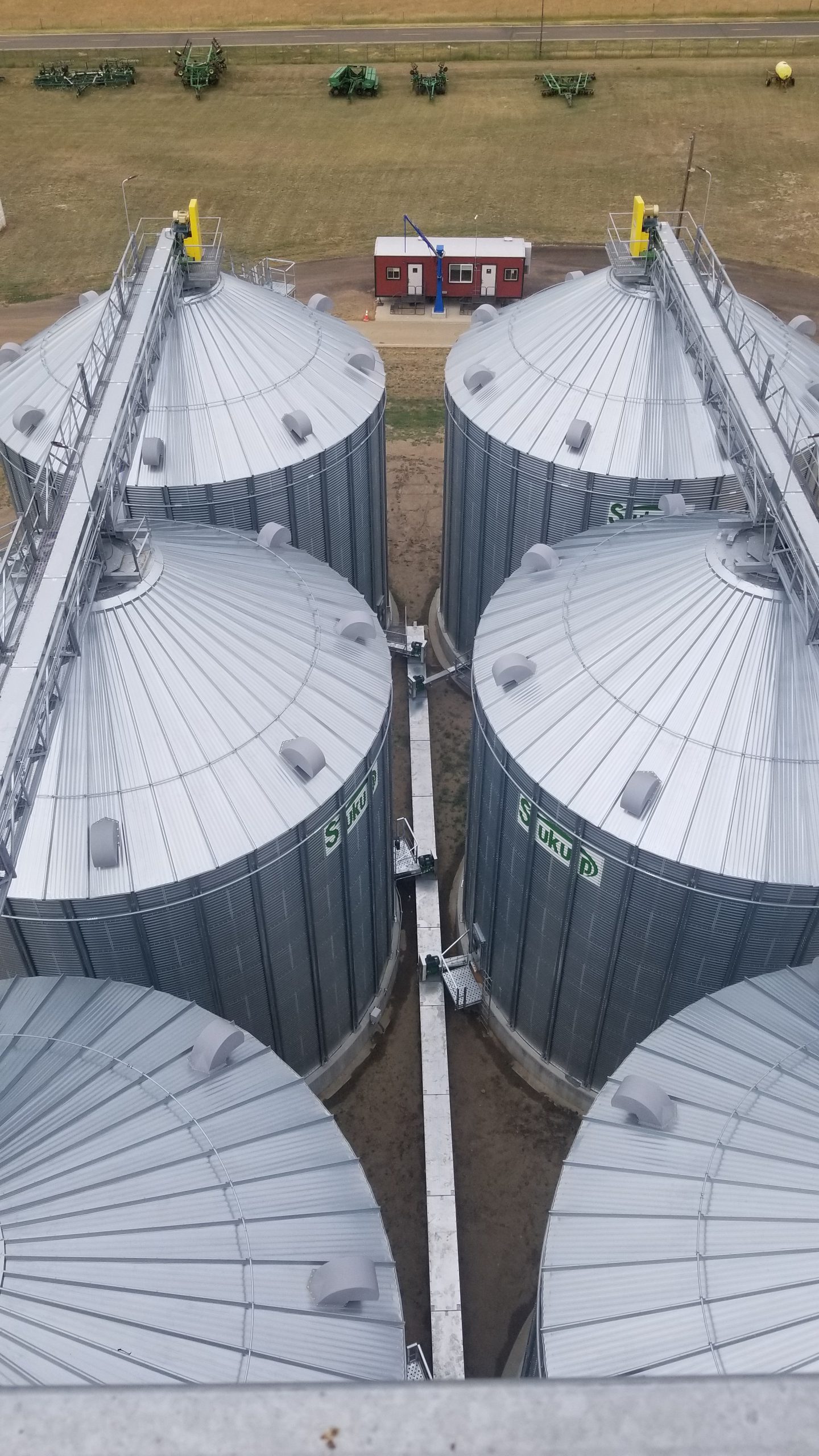As part of the treatment process, solids are separated from wastewater and fully treated until they become a nutrient rich, soil-like material called biosolids. Biosolids are a beneficial and natural soil amendment/fertilizer. Metro’s biosolids have an earthlike consistency and are marketed as METROGRO® Cake.
To produce fully treated biosolids, solids and liquids are separated using an aerobic mechanical process. Microorganisms anaerobically consume the separated solids in a high-temperature environment. This process kills harmful pathogens and turns the material into biosolids.

Responsible Biosolids Management
Managing biosolids is and will continue to be an ongoing challenge as long as humans exist. Metro is committed to making the best use of all available resources.
There are three main ways to manage biosolids:
- Land Applying Biosolids to Farmland
- Landfilling Biosolids
- Burning/Incinerating the Biosolids
We believe the land application of biosolids is the most sustainable and environmentally responsible option for utilizing the byproducts of wastewater treatment. Leveraging this constant resource supports both our Strategic Plan Focus Area of Resource Optimization and our commitment to One Environment solutions while avoiding the negative environmental impacts of other disposal methods.
Today, Metro beneficially reuses 100% of the biosolids it generates.
Supporting Our Agricultural Community
For 32 years, Metro’s beneficially reused our Class B biosolids at our METROGRO Farm. On the 52,000 acres of dryland farm, crops like winter wheat, winter barley, and sorghum-sudangrass are grown. In addition, we partner with local farmers to land apply biosolids to more than 300 private farms.
Visit the Water Environment Research Foundation website for information about the benefits of biosolids reuse.
Regulatory Oversight
Metro not only meets but often surpasses all current federal requirements for beneficial reuse through land application and follows U.S. Environmental Protection Agency (EPA)-approved methods to monitor our biosolids.
Biosolids are subject to one of the most comprehensive regulatory frameworks in environmental protection, established under the Clean Water Act and codified in EPA 40 Code of Federal Regulations (CFR) Part 503 standards. Since 1993, these regulations have mandated stringent requirements for pollutant limits, pathogen reduction, vector attraction reduction, management practices, and extensive monitoring protocols. The EPA continuously strengthens protections through regular reviews that identify additional pollutants potentially present in biosolids and assesses risk.


Your Role in Cleaner Biosolids
What you dispose of at home has a direct impact on the quality of our community’s biosolids. Over 70% of the water we receive comes from households like yours. Every substance poured down drains or flushed down toilets eventually reaches our wastewater treatment facilities. While our advanced treatment processes effectively manage many contaminants, they were not designed to remove all chemicals, particularly substances like per- and polyfluoroalkyl substances (PFAS). For more information on PFAS visit this page: https://www.metrowaterrecovery.com/community/learn-more-about-pfas/
By making thoughtful choices about what enters our water system, you become an essential partner.
- Avoid flushing medications
- Dispose of household chemicals at designated collection sites
- Choose PFAS-free personal care products when possible
Your decisions at the sink, washing machine, and toilet make a meaningful difference in the health of our environment. Cleaner biosolids lead to healthier soils and a healthier environment for all.
Biosolids and PFAS
Metro is committed to transparency through ongoing monitoring and will continue to evaluate standard practices. If you’d like to learn more about Metro’s approach to PFAS, visit this link: https://www.metrowaterrecovery.com/community/learn-more-about-pfas/
Powering the Circular Economy
Instead of treating this byproduct as waste, we turn it into a valuable resource that helps crops grow. The process recycles important nutrients like nitrogen, phosphorus, and organic carbon. This provides farmers with an affordable alternative to costly synthetic fertilizers.
Land application of biosolids keeps this organic matter out of our landfills, cuts greenhouse gas emissions, and helps conserve limited resources like phosphorus. This option supports local agriculture, reduces environmental impacts and helps build a more sustainable and resilient food system.

Interested in learning more?
Visit these sites (clicking on a button will open the website in a new browser window):
METROGRO Update
The METROGRO Update is distributed at the end of every calendar in the I-70 Scout. The I-70 Scout serves communities in eastern Colorado, such as Watkins, Bennett, Strasburg, Byers, Deer Trail, and Agate. Read our most recent edition of the Update below.
